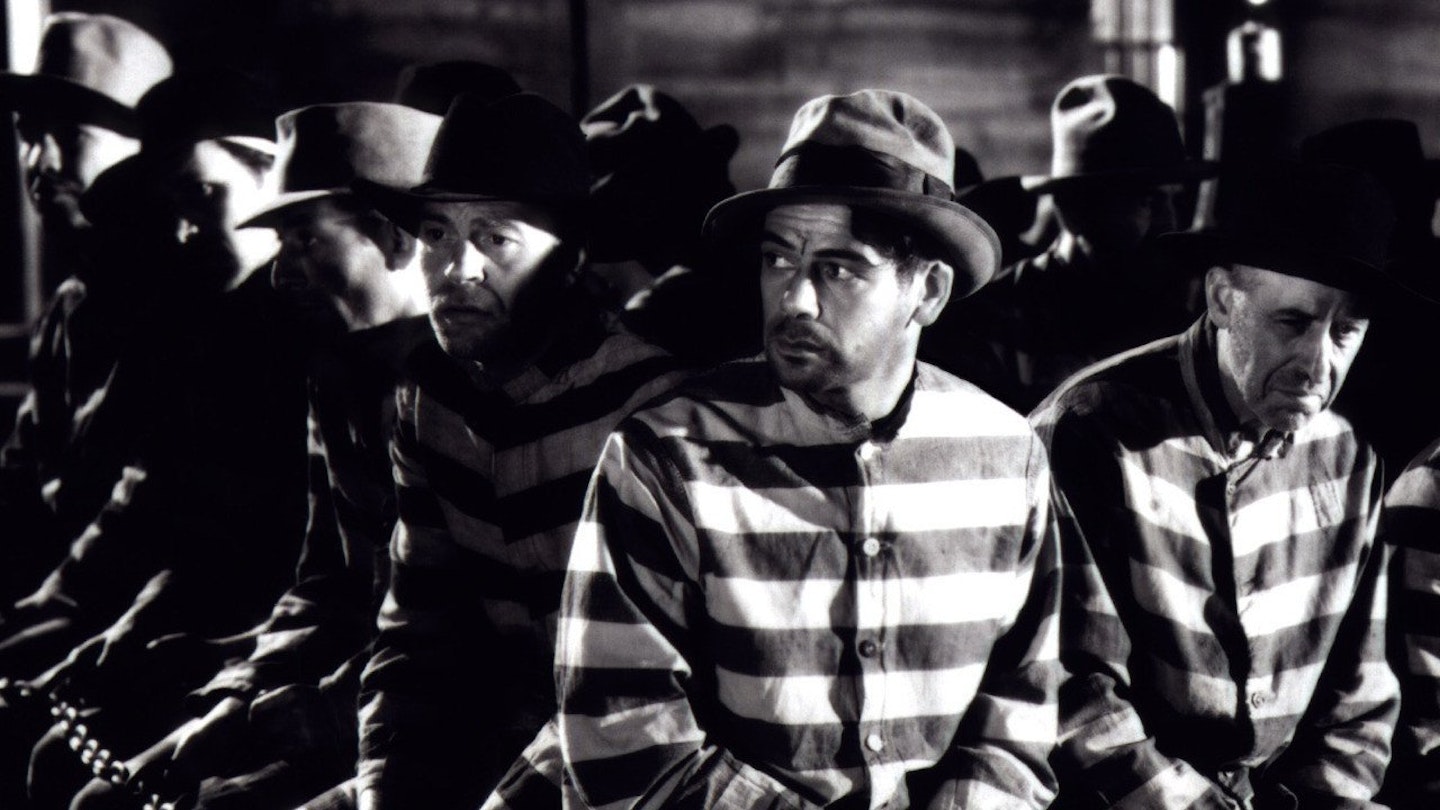The most powerful of Warner Brothers’ early 1930s ‘social problem’ films, this indictment of organised cruelty remains potent, hard-hitting melodrama. Adapted from the autobiography of escapee Robert E. Burns, it skates about some specifics, never naming the state which claps the hero into grand guignol prison camps (the book was called I Am a Fugitive From a Georgia Chain Gang) but is eye-openingly frank for a film of its vintage.
Besides the suffering convicts, who have to ask permission to wipe sweat out of their eyes while swinging sledgehammers and are whipped with a leather strap for ‘pulling a faint’ in the field, the movie features a sequence in a small-town brothel run by familiar character actor Allen (‘Officer Dibble’) Jenkins and a wry, sexy, touching scene as Allen, freshly broken out of jail and wrung out with paranoia and exhaustion, at first resists the gentle approaches of the hooker (Noel Francis) who has been told to make him happy.
Mervyn LeRoy, fresh from Little Caesar, stages classic set-pieces which turn on Muni’s harrowing, understated performance: as when Allen’s smug preacher brother tells him that the state has broken its promise to give him a pardon if he returned voluntarily to jail or the shadowed punchline as the fugitive Allen appears briefly like a haggard ghost to his society girlfriend (Helen Vinson). ‘How do you live?’ ‘I steal!’ Val Kilmer plays Burns in a 1987 TV remake, The Man who Broke 1,000 Chains – but the film’s influence can be seen in a run of pictures including Sullivan’s Travels, Cool Hand Luke and O Brother Where Art Thou?
